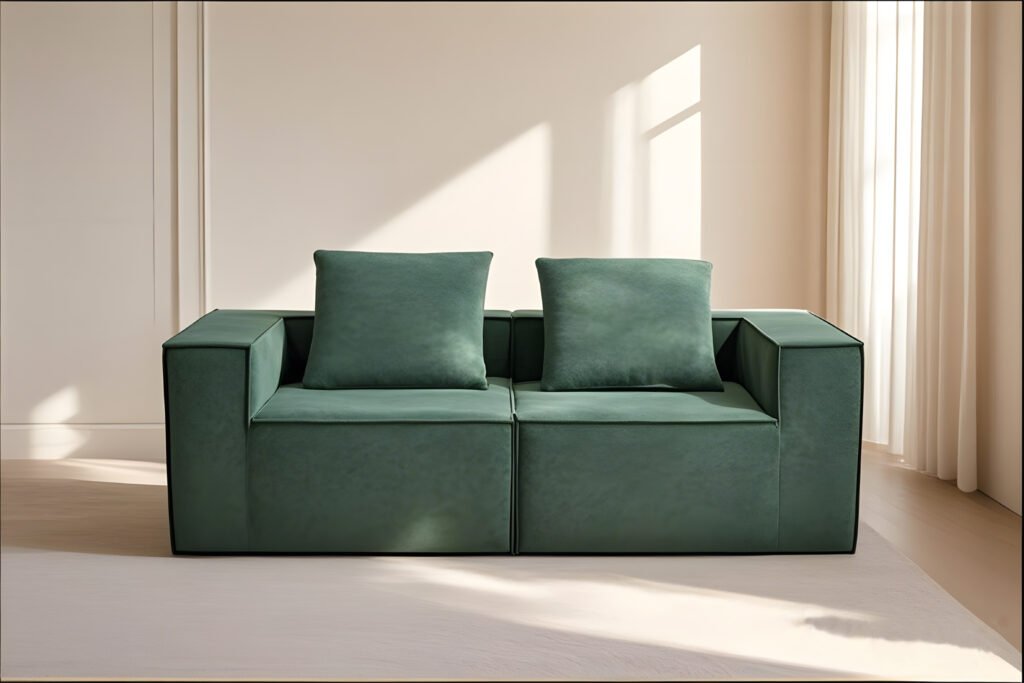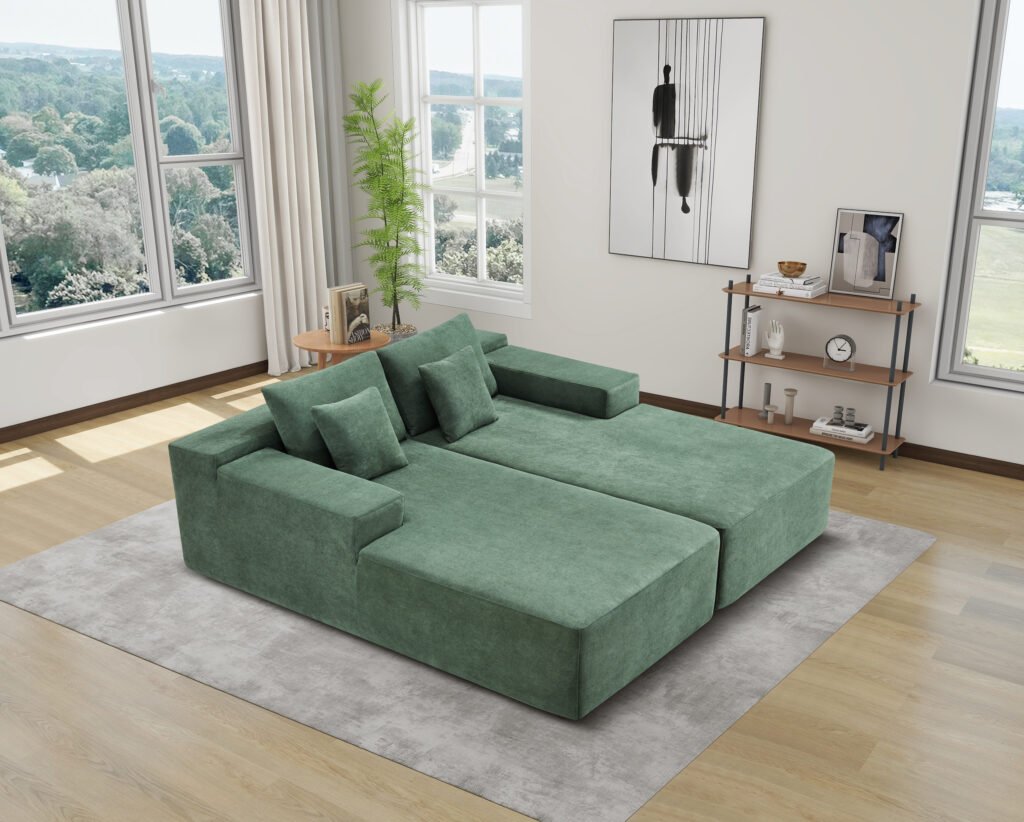Compressed or roll-packed sofas have transformed the furniture industry by enabling easier shipping and handling through vacuum-sealed packaging. These compressed sofa bags and covers, typically made of plastic or synthetic materials, protect the sofa during transport and storage. However, once unpacked, many consumers wonder: can these compressed sofa bags and covers be recycled? This article explores the recyclability of compressed sofa packaging, environmental considerations, practical recycling tips, and how companies like Modular-Sofas.com are contributing to sustainable furniture solutions.
Understanding Compressed Sofa Bags and Covers
Compressed sofa bags and covers are specialized packaging materials designed to:
- Vacuum-seal sofas tightly, reducing volume for efficient shipping.
- Protect sofas from dust, moisture, and damage during transit.
- Facilitate easier handling and storage by compressing bulky furniture into manageable packages.


Are Compressed Sofa Bags and Covers Recyclable?
The recyclability of compressed sofa bags and covers depends on several factors:
- Material Type: Most compressed sofa bags are made from recyclable plastics like PE or PP, which are widely accepted in plastic film recycling programs.
- Cleanliness: Bags must be free from contaminants such as adhesives, dirt, or furniture residues to be recyclable.
- Local Recycling Facilities: Availability of plastic film recycling programs varies by region; curbside recycling often does not accept plastic films.
- Composite Materials: Some bags may include multiple layers or coatings that complicate recycling.
In general, clean plastic compression bags made from single-type plastics can be recycled through specialized plastic film recycling programs, often found at grocery stores or recycling centers.
Challenges in Recycling Compressed Sofa Packaging
- Contamination: Residual adhesives, dirt, or foam particles can contaminate recycling streams.
- Mixed Materials: Multi-layer or laminated bags with metalized films or other additives may not be recyclable.
- Lack of Curbside Acceptance: Many municipal recycling programs exclude plastic films due to processing difficulties.
- Volume and Collection: Large, bulky bags require proper collection points to prevent landfill disposal.
How to Properly Recycle Compressed Sofa Bags and Covers
- Check the Material: Identify if the bag is made of recyclable plastic film (e.g., PE or PP). Look for recycling symbols or codes.
- Clean the Bag: Remove any labels, tape, foam scraps, or dirt to avoid contamination.
- Locate Recycling Programs: Use local recycling directories or websites to find drop-off locations accepting plastic films.
- Do Not Include in Curbside Bins: Avoid placing plastic compression bags in curbside recycling unless explicitly accepted.
- Reuse When Possible: Consider reusing bags for storage or moving before recycling.


Environmental Impact of Recycling Sofa Packaging
Recycling plastic films like compressed sofa bags helps:
- Reduce Landfill Waste: Diverts plastic from landfills where it can take hundreds of years to degrade.
- Conserve Resources: Recycling plastic reduces the need for virgin petroleum-based materials.
- Lower Carbon Footprint: Recycling plastic film uses less energy compared to producing new plastic.
- Support Circular Economy: Encourages reuse of materials in new products, reducing environmental strain.
Alternatives and Innovations in Sustainable Sofa Packaging
Some companies, including Modular-Sofas.com, are adopting eco-friendly packaging methods:
- Biodegradable or Compostable Films: Using materials that break down more readily in the environment.
- Reusable Covers: Designing packaging that customers can reuse for storage or moving.
- Minimal Packaging: Reducing packaging layers to minimize waste.
- Recycled Content: Incorporating recycled plastics into packaging materials.
What to Do with Damaged or Non-Recyclable Sofa Bags
If compressed sofa bags or covers are damaged or non-recyclable:
- Reuse for Storage or Protection: Use as dust covers or protective layers for other furniture or items.
- Repurpose Creatively: Cut into drop cloths for painting or use as liners for trash bins.
- Proper Disposal: If recycling is not an option, dispose of bags responsibly according to local waste management guidelines.
How Modular-Sofas.com Supports Sustainable Packaging
At Modular-Sofas.com, sustainability is a core value. The company:
- Uses high-quality, recyclable compression bags designed for durability and recyclability.
- Provides guidance to customers on proper disposal and recycling of packaging materials.
- Continuously explores innovative packaging solutions to minimize environmental impact.
- Offers modular sofas with removable, washable covers to extend product life and reduce waste.


Table: Overview of Recycling Compressed Sofa Bags and Covers
| Aspect | Details | Recommendations |
|---|---|---|
| Material Type | Mostly polyethylene (PE) or polypropylene (PP) plastics | Confirm recycling code and type |
| Cleanliness Requirement | Must be free from adhesives, dirt, foam residue | Clean thoroughly before recycling |
| Recycling Availability | Accepted at specialized plastic film drop-off centers | Locate nearest collection points |
| Curbside Recycling | Generally not accepted | Avoid placing in curbside bins |
| Composite Materials | Multi-layer or metalized films often non-recyclable | Dispose responsibly if non-recyclable |
| Environmental Benefits | Saves resources, reduces landfill and carbon footprint | Prioritize recycling and reuse |
| Alternatives | Biodegradable films, reusable covers, minimal packaging | Support companies with sustainable packaging |
| Handling Damaged Bags | Reuse or repurpose creatively | Avoid landfill when possible |
Practical Tips for Consumers
- Always ask your sofa supplier about packaging materials and recycling options.
- Keep packaging intact until you confirm recycling methods.
- Avoid mixing plastic films with other recyclables.
- Consider donating or reusing packaging materials.
- Advocate for sustainable packaging with furniture brands.
Conclusion
Compressed sofa bags and covers can often be recycled if they are made from recyclable plastics and properly cleaned. However, recycling depends heavily on local infrastructure and material composition. Consumers should take care to clean and locate appropriate recycling programs rather than disposing of these materials in regular trash or curbside bins.
Companies like Modular-Sofas.com are leading the way in offering recyclable, durable, and sustainable sofa packaging solutions, helping reduce environmental impact while maintaining product protection and convenience.
By understanding the materials, challenges, and proper recycling methods, consumers can contribute to a circular economy and help reduce plastic waste associated with furniture packaging.